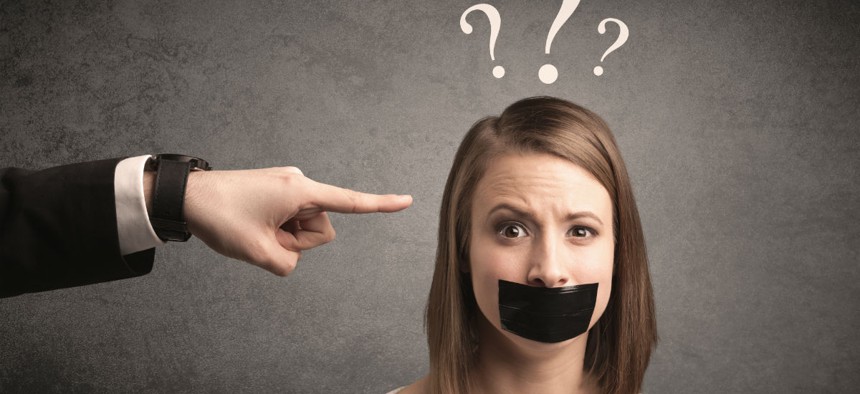
Why You Should Squash the Urge to Quash Those Who Disagree
Too often, we are confounded when other people show signs that they don't think the same way we do.
In recent months I've had to de-friend a number of people on Facebook. I enjoy hearing diverse views but it has degenerated to this:
"Well I know where you get your news."
"The fact that you could even say that means you aren't worth debating."
"You need help."
"That comment is beneath you."
"You're an ignorant idiot schmuck."
How has civil discourse sunk to such low levels? A great article by Sean Blanda, "The 'Other Side' Is Not Dumb," explains it in terms of psychology, the "false-consensus bias." Essentially we are confounded when other people show signs that they don't think the same way we do.
On social media, being confronted by different viewpoints leads us to assume the worst. If you don't agree with me - well then you must be crazy!
"We and our friends are the sane ones and . . . there’s a crazy Other Side that must be laughed at — an Other Side that just doesn’t get it, and is clearly not as intelligent as us."
The problem with allowing the "false consensus bias" to proliferate, says Blanda, is that we lose out on the opportunity to actually learn something from those who vehemently disagree with our views.
"If we want to consider online discourse productive, we need to move past this."
As Blanda rightly points out, it is important that we preserve the civic town hall that is Facebook and other forms of online conversation. That is a social need. And it is important for each of us to practice listening, not just preaching, in these forums.
But there is another problem here that must be pointed out as well. When the virtual world becomes a place of forced consensus, those with dissenting views are essentially shut down from airing their unique and valuable points of view.
This can happen in a lot of ways. It can take the form of direct, rude comments as above. But it can also happen in other ways.
- Shock: "You're supporting who? Really?"
- Expressions of concern for you, when you begin sharing news about social ills that really make people uncomfortable: "Don't you think it's a little too much?"
Sometimes people are actually supportive: "Thank you for sharing that," they might say. Or you see that they've shared your post with others. That is the good side of an online interchange.
I've been part of conversation that changed my own views about the world. Politically, religiously, culturally, psychologically. Whether it's others who have completely different views, or respectful disagreement where the flaws in one's argument are pointed to and countered. Those are the most fruitful conversations of all.
One thing I know. You will never get squashed sharing a personal anecdote or funny statistic; a photo of your family at a family barbecue; cat videos; peace mantras; or anything with Kim Kardashian and/or Taylor Swift. Those topics are safe.
But is that really all there is, safety?
For your sake, and our sake, the world that depends on your uniqueness, please do not be a sheep.
Whether other people like it or not, we all need to hear what you're thinking.
Copyright 2016 by Dannielle Blumenthal. All opinions are the author's own and do not necessarily represent the views of her employer or any other organization or entity.






